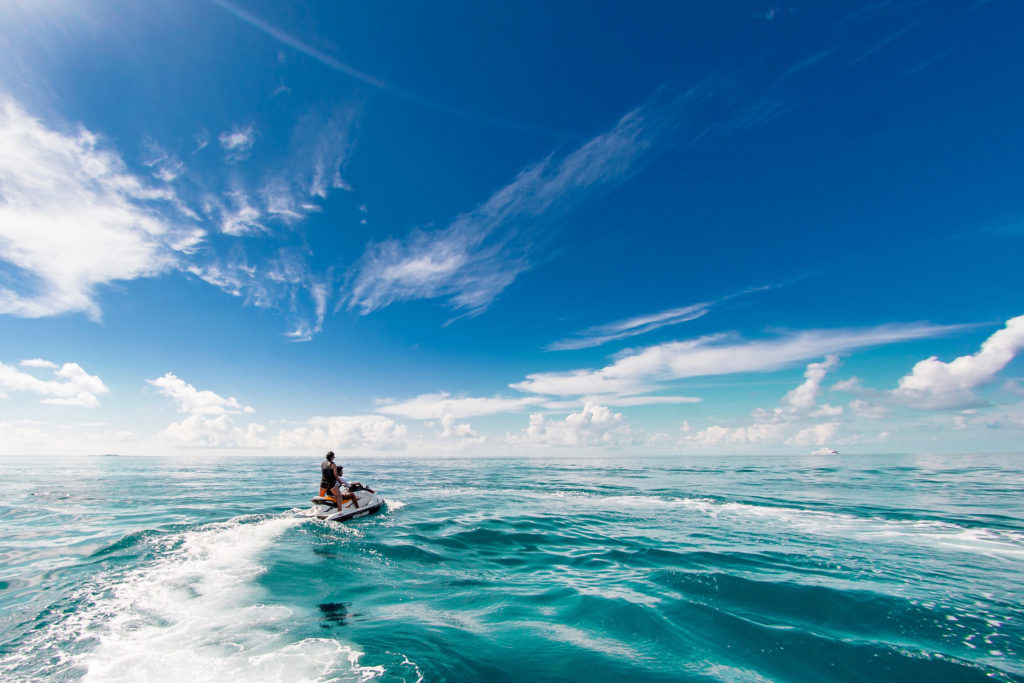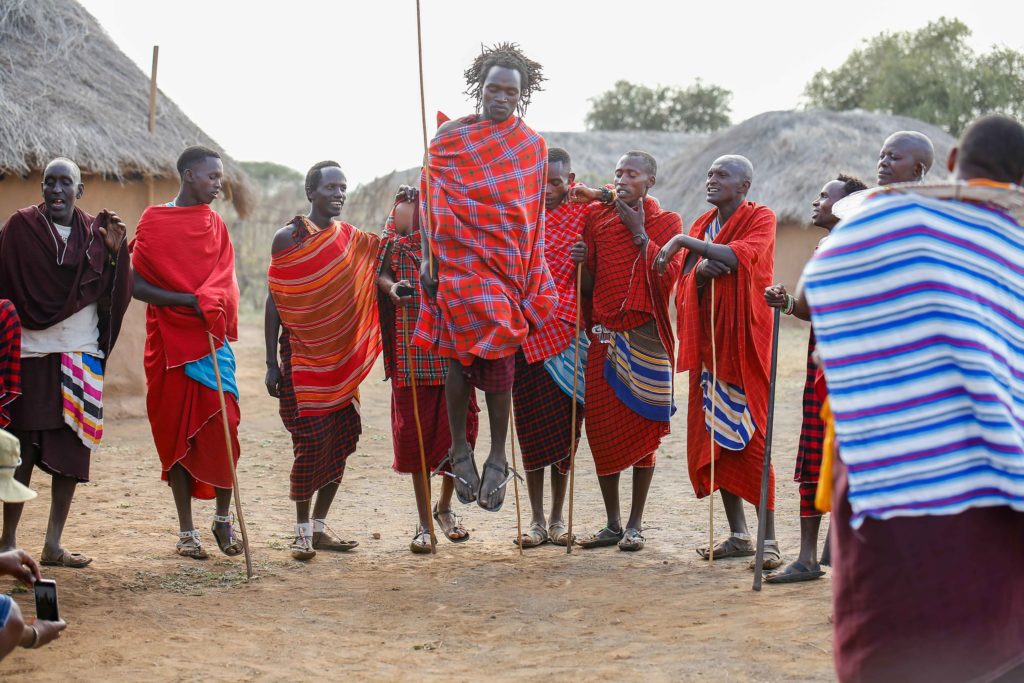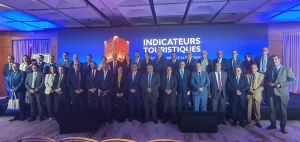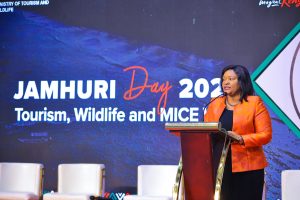In Indian tourists’ quest for discovering new destinations, Africa figures high up on the list as the continent is opening up itself to the visitors from India.
Africa is not a country, it’s a continent!”, you’ll hear this often when you speak to African travel trade professionals. And rightly so, Africa is indeed a continent, where from North to South and East to West, landscapes, people, economies change and so do situations. Each of its countries have a variety of destinations with something quite unique to offer.
Even though Africa and India have had historical relations for centuries, the level of mutual awareness between the two remains extremely low. The imagery is unfortunately made of clichés and assumptions based on negative publicity by the media. Finally, however, the mystery around Africa, the wish to explore the offbeat is slowly gaining attention of the contemporary Indian traveller.
“While Tanzania, Kenya, South Africa, Botswana remain hot favourites for Indian travellers, we are seeing an increased interest in other countries like Rwanda, Uganda, Namibia, Zambia, Zimbabwe, Mozambique and Madagascar. We have been focusing on creating special expeditions to unusual destinations like Gabon, Ethiopia and Chad where the logistics are still quite nascent but the wildlife and cultural experience is phenomenal,” explains Smita Srivastava, CEO of Chalo Africa, one of the rare Indian tour operator entirely specialised on outbound travels to Africa.

Geographic and cultural proximity
Africa has indeed great advantages to attract a significant chunk of the 30 million Indians that are expected to travel overseas in 2020. Besides the desire to visit off-beat destinations, the growth in number of Indians headed to Africa will also stem from better connectivity between India and various African nations. While earlier getting to most African nations, often the same distance as some South East Asian nations, meant travelling for over 15 hours. But now, some African countries can be reached with direct flights from India in just six-eight hours through airlines like Ethiopian Airlines, Kenyan Airways, Air Seychelles, Air Mauritius, Air Tanzania, Air Austral flying from major Tier 1 cities including Mumbai, Delhi and Chennai.
In October 2019, Air India inaugurated a direct flight to Nairobi, its first destination on the continent.
“We have resumed the flight to Nairobi because clearly there is a great opportunity both in terms of cargo and passengers. If I have to launch new routes, I’ll clearly bank on Africa, this is where the growth and opportunities are” Meenakshi Mallik, executive director, sales & marketing at Air India
African countries keen to promote themselves in India also leverage the cultural and historical proximity that India has with some of the African countries and where many millions of persons of Indian origin have been living for as long as 200 years. The Indian diaspora in Africa is in fact estimated to be 2.6 million strong and is spread across 46 countries. South Africa is home to the highest number of Indian diaspora in the African continent, with a total strength of 1,218,000 constituting 3 pc of South Africa’s total population.


“India’s relationship with South Africa is both fundamental and unique, dating back several centuries and is anchored in common ideals, ideas, interests, and icons – like Mahatma Gandhi and Nelson Mandela; it was the first country in the world to sever trade relations with the apartheid government (in 1946) and subsequently imposed a complete – diplomatic, commercial, cultural and sports – embargo on South Africa,” explains Neliswa Nkani, Hub Head, MEISEA of South African Tourism (SAT).
“Without the Indian population we could have not built the railway. And the Indian community in Kenya is very wealthy and powerful economically. Already, our fifth largest market is India and it can soon be the third biggest. Nearly 125,000 Indians visited Kenya in 2018.” Najib Balala, Kenyan cabinet secretary (Minister) of Tourism

Indeed several persons of Indian origin are represented in the economic and political landscape of Kenya, including in tourism and hospitality as many of them own luxury hotels. The story is very similar in Uganda, Tanzania, Mauritius and many other countries with a sizeable Indian diaspora.
The African Indian diaspora has kept its culture alive. In Durban, South Africa, Nairobi, Kenya and even Gaborone in Botswana, it is quite easy to spot large temples and Indian restaurants and shops. In terms of cuisine, it’s actually easier to find vegetarian options including Indian food in Africa in comparison to some European countries.
Indian millennials shift gears
Over the past few years, there has been a significant development in the outbound tourism in India, mainly fueled by the millennial travellers who are not content to follow the well-trodden circuits that have been traditionally the mainstay of outbound tourists. The young tourists have been looking for new and often niche destinations around the world, be it in central or eastern Europe, Eurasia and central Asia as well as Latin America and of course Africa.
The millennials, including students and early career youth, are more inclined to discover offbeat, new and exciting travel destinations, they mostly book their itineraries online, are much more open to adventure and improvisation.
“Millennials look at destinations through the eyes of social media and cost effectiveness. We have also witnessed a marked shift towards experiential and adventure travel from Indian travellers travelling to South Africa. In fact, four of every five Indian travellers include adventure activities in their South African itineraries!” Neliswa Nkani, Hub Head, MEISEA of South African Tourism
At the same time there is also a rising demand from the luxury segment in India looking for crafted experience and boutique hospitality. “We have noticed that a lot of travellers do not want to just tick off items on their check-list, instead want to have an unforgettable experience. The response so far has been tremendous,” confirms Chalo Africa’s Smita.
Way forward
According to the World Tourism Organisation (WTO), Africa could more than double the number of tourist arrivals from 50 million in 2010 to 134 million in 2030. With low-cost airlines, new tourism infrastructure, and visa rule changes, Africa is becoming more accessible.
“Open borders by African states saw a significant push last year and the year 2020 is positive with more countries introducing e-visa facilities. The product offering in Africa continues to see diversification deep rooted in the authentic culture. There is also a shift in the marketing strategies towards Asia. Through my meetings with various African leaders, I learn that India as a target is a high priority in the 2020 agenda and looking at the long term it will definitely constitute a great pool of travellers v/s western travellers.” Kojo Bentum-Williams, UNWTO senior expert for Communications in Africa and publisher of Voyages Afriq magazine
Looking at the long term, African countries will also have to play their role in meeting the sustainable development goals in a much more pro-active way.
“The last 10 years were the hottest since records have been kept and extreme weather is affecting the tourism industry. From overtourism to the reduction of single use plastics, from the increased use of biofuels in aviation – just not at the expense of food production – and to the use of more energy efficient gas turbines in cruise ships, there are dozens of more areas I could highlight here where action needs to be taken to protect resources” Prof. Dr. Wolfgang H. Thome, publisher of ATC News
In order to attract more Indian tourists, the African countries will have to open skies with more low cost airlines options between African countries and better organised visa rules for Indian tourists. Another key aspect is marketing and communication. For the moment only few African countries have a direct presence or representation on the Indian market. Others remain absent or sporadically present at a few fairs and events. Another sad fact is that not every African country has a diplomatic mission in India which limits the travel possibilities as getting visas become much more complicated.
But amidst the challenges, it’s evident that African countries have got plenty of advantages too. It’s finally the mystery of the continent that draws Indians to Africa. The excitement of discovering the unknown, the adventure thrills, the wish to do something different boosted by a clear interest shift. Indian travellers’ expectations and desires as well as way of travel is changing rapidly, will African countries play the right card in 2020?
Bollywood and MICE

Another opportunity for Africa are the growing MICE and film segments.
Bollywood is known to play a major role in influencing travel decisions and some African countries have already positioned themselves as shooting destinations.
Last year the Embassy of India in Nairobi organised the first ever Indian film festival where many directors could discover the destination for future shoots. Uganda also welcomed an exclusive Indian film familiarisation trip with key players from India.
“My eight-day-long trip to Uganda was also my maiden trip to Africa. I was travelling with Indian film industry such as Bahubali producers and veteran Bharat Dhabolkar who were scouting for film locations. Visa on arrival facility for Indians, availability of Indian food, easy connectivity, affordable tickets, a large Indian diaspora who call Uganda home and the source of the Nile where Mahatma Gandhi’s ashes were immersed make it an ideal destination for Indians,” testifies Abhinav Singh, a veteran Indian travel blogger at asoul-window.com.
South Africa on the other side is also a well known destination already for welcoming films stars and cricket celebrities. “Last year, noted actress Kareena Kapoor and her family explored the South African city of Cape Town. Akshay Kumar and his family have also visited the country. Hrithik Roshan was also seen spending time with his sons adventuring in South Africa,” says SAT’s Neliswa.
From a MICE perspective, the Indian market has specific needs and most importantly looks at new offbeat places as most of the traditional destinations in India’s neighbourhood as well as Europe and North America have already been largely explored. “Last year we had the opportunity to talk to the MICE players in India and they have very different needs as compared to normal tour operators. MICE can include large but also smaller exclusive luxury groups, Kenya has a lot to offer in terms of team building activities and variety of offbeat locations. Plus one big advantage we have are the direct flights to Nairobi,” points out Jacinta Nzioka, head of the Kenya National Convention Bureau.
Story by Christine Nayagam- Media India Group







